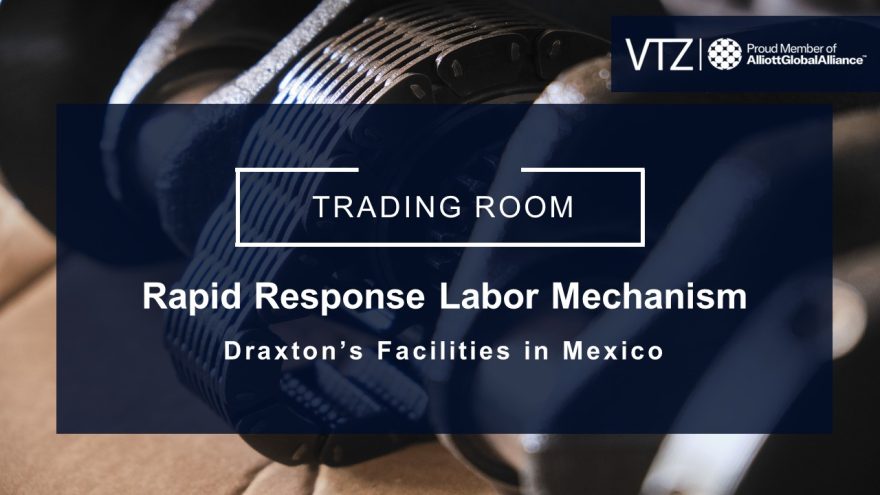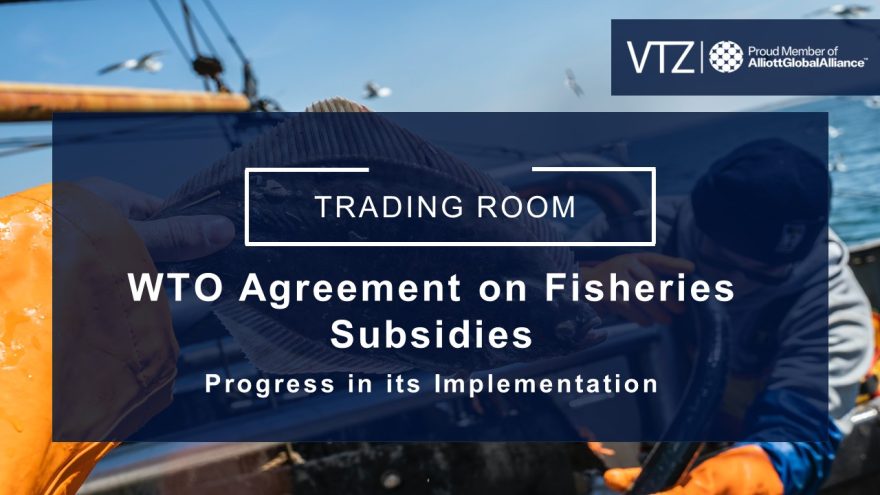Rapid Response Labor Mechanism: Draxton Case
The Office of the United States Trade Representative (USTR) has submitted a request to the Government of Mexico to review whether workers at Draxton’s factory in Irapuato are being denied the right to freedom of association and collective bargaining. The USTR is concerned that Draxton may be privileging a union affiliated to the Confederación de Agrupaciones Sindicales Mexicanas (CONASIM-BJG) and interfering with the activities of the independent union Sindicato Independiente Nacional de Trabajadores y Trabajadoras de la Industria Automotriz (SINTTIA). In this article, VTZ shares with you its executive summary of this case.
What is the Rapid Response Labor Mechanism?
The Rapid Response Labor Mechanism (RRLM) is a dispute settlement mechanism under the United States-Mexico-Canada Agreement (USMCA) that allows the prompt investigation of denials of labor rights. Such denials must be related to the right of free association and collective bargaining of specific industries in Mexico. As of today, virtually all cases have related to the automotive and auto-parts industries. In VTZ, we have numerous articles on the RRLM that you can read here:
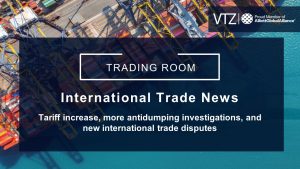
International Trade News
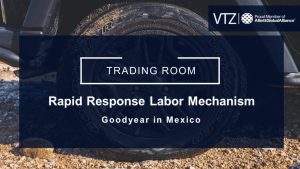
Goodyear Case: Rapid Response Labor Mechanism

BBB Industries and Manufacturas UV RRLM Cases
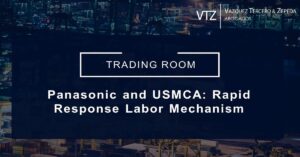
Panasonic and USMCA : Rapid Response Labor Mechanism
Overall, the Rapid Response Labor Mechanism is an effective means to protect labor rights because it allows the imposition of penalties and enforcement measures. These measures can include the suspension of trade benefits, such as the imposition of tariffs. By establishing an effective mechanism, the RRLM aims to promote more fair and balanced trade, as well as proper working conditions for workers across North America. If you want more information, you can check out our publication on how the mechanism operates.
Background on Draxton
Draxton is a global company with operations in six countries on three continents: Europe, Asia, and North America. Draxton is dedicated to the casting and processing of parts for brakes, engines, transmissions, and chassis systems for the automotive industry. Among other auto parts, Draxton produces calipers, brackets, knuckles, crankshafts, brake discs and clutch plates. It has a global casting capacity of more than 620 thousand tons, and a processing capacity of more than 17 million parts, including Joint Ventures.
Currently, Draxton has 3 factories in Mexico located in Saltillo, San Luis Potosí, and Irapuato. The alleged denial of rights took place in Draxton’s facilities in Irapuato. The Irapuato factory began its operations back in 2004. This facility has a production capacity of 78,000 K annual tons and is used to produce brakes, powertrains, transmissions, calipers, brackets, adaptors, crankshafts, and knuckles. As of today, Draxton has 490 workers in its Irapuato factory.
What happened at Draxton’s Factory?
The United States received information appearing to indicate that several denials of labor rights took place in Draxton’s factory. Basically, the U.S. Government identified two different conducts from Draxton. On the one hand, Draxton interfered in union activities with the intention of supporting or controlling the Sindicato Nacional de Trabajadores de la Industria Metal-Mecanica y del Acero, Similares y Conexas «Lic. Benito Pablo Juárez García”, a union that is a member of the Confederación de Agrupaciones Sindicales Mexicanas (CONASIM-BJG). Moreover, Draxton showed favoritism by giving CONASIM-BJG a major role in hiring the staff for its factory.
US asks Mexico to investigate labor complaints filed against Draxton plant in Irapuatohttps://t.co/e7wUUGRtz2
— Meta Jaun News (@MetaJaunNews) June 1, 2023
On the other hand, the United States observed that Draxton allegedly interfered with workers’ rights to organize, select, and engage with a union of their choice. Draxton deter organizing efforts of the Sindicato Independiente Nacional de Trabajadores y Trabajadoras de la Industria Automotriz (SINTTIA). Specifically, the U.S. Government identified that Draxton terminated an official from an independent union, and it allegedly interfered with related activities to control the independent union.
Moreover, when workers at the facility tried to join the SINTTIA, Draxton’s staff allegedly harassed, surveilled, and intimidated the workers. In addition, an SINTTIA official faced threats and violence at his house. Additionally, the U.S. Government noticed that workers did not receive a copy of their collective bargaining agreement before the vote in 2022, and they still have not received it.
Activation of the Rapid Response Labor Mechanism
In this case, the U.S. Government conducted –interestingly– a thorough investigation on its own and decided to self-initiate a request for review. In sum, the United States has activated nine times the RRLM against Mexico since the USMCA came into force in 2020. This is fourth time that the U.S. Government activates the Rapid Response Labor Mechanism against Mexico in 2023. Moreover, it is only the second time that the USTR has self-initiated the RRLM.
Under the Rapid Response Labor Mechanism tool in the USMCA, today we announced our request that Mexico reviews whether workers at a Draxton facility in Irapuato, Guanajuato, are being denied the rights to freedom of association and collective bargaining. https://t.co/vQxVrxE9xG
— United States Trade Representative (@USTradeRep) May 31, 2023
Now, Mexico has ten days to inform the Unites States if it agrees to conduct a review. That being the case, the Mexican Government would have 45 days to complete the review. In this timeframe, Mexico must submit a report to the United States where it includes the findings of its investigation, as well as the remedial actions for the potential denial of rights. Otherwise, the U.S. Government is entitled to request the establishment of a panel, if it does not agree with the Mexican report.
Conclusions
The Draxton case exemplifies the importance of the Rapid Response Labor Mechanism. In practice, this mechanism allows to tackle alleged denial of labor rights in an effective and timely manner. Moreover, the most recent cases demonstrate that the United States is strongly committed to ensure proper labor conditions in Mexico and will not doubt to active the RRLM, especially if it refers to the automotive or auto-part industries. Moreover, these cases have also allowed Mexico to improve how it provides direct and forceful responses to denials of labor rights in its country. Overall, the Draxton case serves as another step for building more fair and equitable labor conditions in North America.
Need more information?
VTZ is a firm specialized in International Trade and Customs with extensive experience advising companies in international trade in Mexico.

